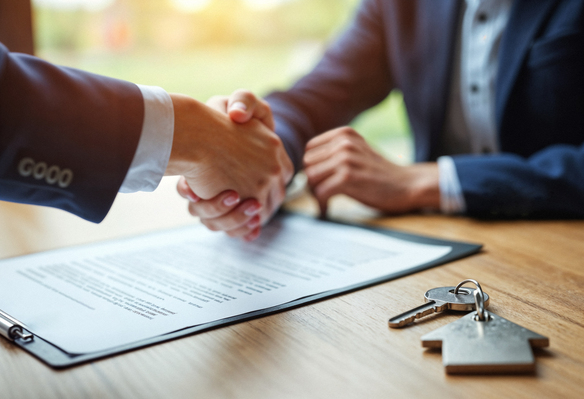Showtime is go-time in the retail conference world, but attendees should first master the meeting fundamentals.
When you get a chance to go face-to-face with the top dealmakers and experts in your industry, you should make the most of it. A new meeting, deal or relationship could be the difference in a conference, a year or even your career.
Those driving innovation and evolution in retail real estate can be found at the International Council of Shopping Centers or ICSC. Whether a local or regional event or the premier national conference, ICSC Las Vegas every May in Las Vegas, attendees should take great care in their planning and preparations, while also making time for extras.
Plan
Why should you go to ICSC? The question sounds simple, but it’s important to have detailed, reality-based objectives for attending the conference, starting with your target connections.
“Should you meet with owner/operators or should you meet with tenants or a combination of both. If you don’t have a good reason to go, such as a project or site, then don’t go because it wastes everyone’s time,” writes John Orr, president of Carolina Retail Experts.
After creating a list of targeted contacts you want to meet and why, work diligently to schedule the prospects for firm meetings. Your company booth in the convention hall is always a good place to meet given the concentration of team support and brand visual power behind you. If not there, make it as convenient for your prospect as possible… they have probably been on their feet all day.
“After the first few years of the conference, I started planning my attendance around the comfort level of my shoes,” says Ryan Nixon, a more than 20-year sales veteran of ICSC Vegas. “By Year 15, I ditched the suit for slacks and a sport coat, my pace slowed a bit to preserve my feet and I never left the hotel room without a PowerBar and Gatorade.”
In addition to stamina, prepare your calendar a year in advance, Orr recommends. Especially important when your conference schedule includes many stops each year, blocking off the time for ICSC as soon as possible reduces the possibility of conflicts down the road.
Prepare
Being organized is being in control, it’s been said. That control means a greater chance of success when pitching your retail business.
First, your ICSC meeting materials should be easily accessible (including plenty of business cards!). Time is of the essence when connecting with prospective clients so make those few minutes together smooth and efficient. Orr adds the “pro tip” of not being totally reliant on Internet access; make sure your presentation materials and marketing collateral are available offline as well.
It goes without saying that your presentation should be well-rehearsed. When prospects are confused by a hole in your messaging or distracted by a fumble, they are less likely to appreciate and connect with the product or service you’re offering.
Finally, it’s ICSC so make sure you know prospects’ stores and their competitor stores and understand the market, Orr adds.
Think Extras
Extra effort is a good thing in business, and so it is at ICSC. Scheduling that additional time to walk the exhibition floor (with the right shoes) and drop in at various booths might lead to the discovery of new or expanding concepts or happening upon that friend from two jobs ago or a fellow alum with powerful connections. “We enjoy this environment, it is exciting and full of action. And that is where our team thrives.” said Tim Patton, Infinitee’s CEO.
Don’t stop there. Scheduling “special time outside of the show hours to take clients or prospects to dinner or meet for coffee” is a good way “to solidify existing relationships and create new ones,” according to Orr. Let’s face it: people are going to remember a nice dinner and hours of conversation versus another hustle and bustle appointment in the conference crowd.
And don’t forget about “after the conference”. Once you get home, the follow-up begins. It’s a good idea to sort your notes/cards into piles. One pile is for immediate follow-ups which might typically be a specific proposal, or any info to send in the pursuit of new business. The other pile is for follow-up/thank you notes, with the goal of emailing them within a few days of returning home.


.jpg)